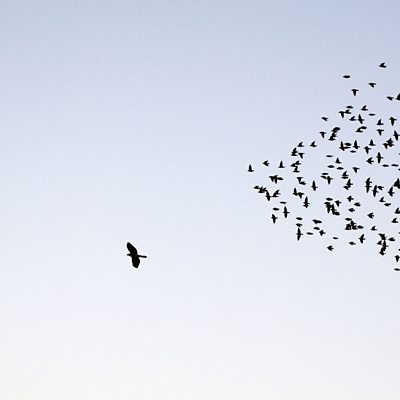Episode details

Available for over a year
Millions of us today will use public transport to get to work, drop off kids or grandkids, and visit friends and family. Perhaps youтre feeling a sense of trepidation as you board your bus or tube or train and wonder who you might be making the journey alongside. To be able to share space with others we donтt know, and to trust they wonтt harm us, is part of what makes society function. But itтs also this very human ability to trust others that dangerous people can exploit, causing us to doubt our safety and the intent of others. As details emerge of the horror that took place on the train from Doncaster to London, Iтm struck again by the profound acts of human kindness and courage also emerging. The man who put himself in harmтs way shielding a woman who was about to be attacked, those who used their clothing to stem the blood of a wounded stranger, the LNER staff member whose actions were described by the police as nothing short of heroic. The world feels increasingly dangerous т and I sometimes fear I wouldnтt find the courage т to act selflessly in such situations. But often people who show such bravery will say that they acted from instinct т after all there isnтt always time to think things through. This suggests to me that people are hard-wired to think of others; the idea that the hallmarks of humanity are selfishness, narcissism, and the survival of the fittest, doesnтt ring true at times like these. The Kerslake Report into the Manchester Arena attack that killed 22 people in 2017, for example, found there were тhundreds if not thousands of acts of individual bravery and selflessnessт. There were similar Impulsive acts of altruism following the Southport attack last summer, and after 9/11 and many other tragic moments. We might think that our society is becoming more and more polarised, with tighter and tighter lines drawn around who we consider тusт and тthemт to be. But on Saturdayтs train - full of passengers from all walks of life, backgrounds, cultures and ages т there was one common enemy; the attacker. At times of tragedy we are bound together in our humanity. What we see in the examples of altruistic bravery is people seeing othersт human need first - they donтt stop and ask them first where they are from. Thereтs a famous example of this in the Bible т the Good Samaritan is a story of someone who stops to help someone society says he should not be bothering with. Human fragility and commonality pierce through political polarization. In his 1963 sermon on this story in Lukeтs gospel, Martin Luther King wrote that we must not ignore the wounded we encounter. Because, he says: тHe is a part of me and I am a part of him. His agony diminishes me, and his salvation enlarges me.т So as we board trains today, we have a choice. To trust in the humanity and goodness of others. Not just because the alternative is too unbearable to contemplate т but because this is who we are.
Programme Website